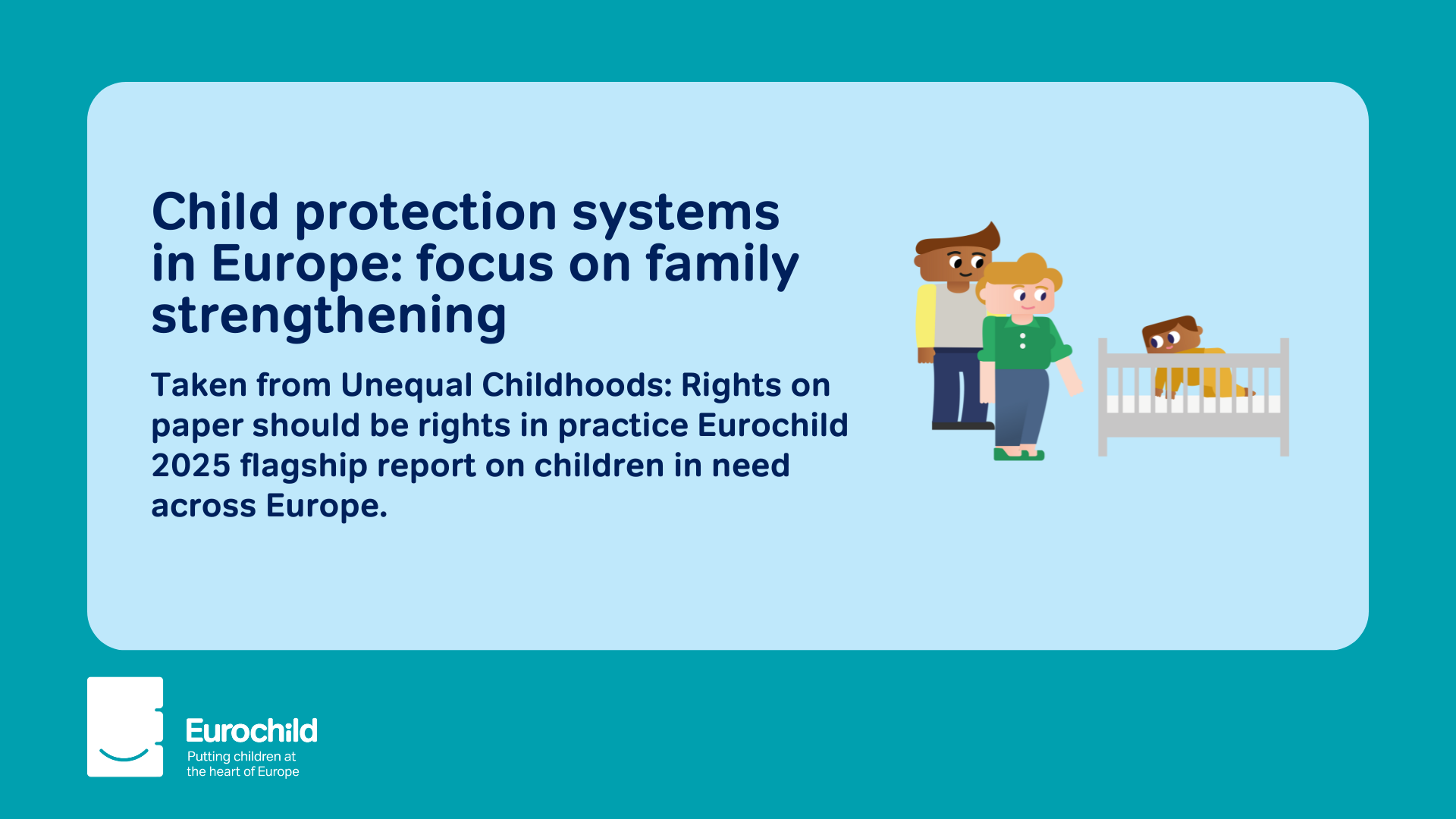Let Children be Children: Lessons from the Field on the Protection and Integration of Refugee and Migrant Children in Europe
The new report, produced by Eurochild and SOS Children’s Villages, offers 16 inspiring practices that showcases how the child protection services are responding to the needs of refugee and migrant children in Europe.
“[What worries me more] are things about the past… and also the future. How life and school will be in the future. …I would imagine that in five years I will speak Finnish, I will be studying, and I will have a part-time job. This is at least what I imagine and hope for,” – said a 17-year-old unaccompanied boy from Afghanistan living in Finland.
“[Without my guardian] things would not be good, because being alone is not good. He [the guardian] never abandons me. [When I am with my guardian] everything is good [and] I don’t think of my problems,” said a 17-year-old unaccompanied boy living in Germany.
A new report entitled, “Let Children be Children: Lessons from the Field on the Protection and Integration of Refugee and Migrant Children in Europe”, produced by Eurochild and SOS Children’s Villages offers 16 inspiring practices that showcases how the child protection services are responding to the needs of refugee and migrant children in Europe.
The 16 case studies feature solutions and promising examples from Austria, Finland, Germany, Greece, Hungary, Ireland, Italy, Serbia, Slovakia, Sweden, The Netherlands and United Kingdom.
A range of services and programmes running across Europe for unaccompanied and separated children and families are highlighted in the report, including quality family and community-based alternative care to unaccompanied and separated children; support to young people in their transition to adulthood; the promotion of alternatives to detention; afterschool programmes and guardianship services to empower children and young people as they go through migration procedures and integrate into a new society.
The report acts as a resource to support practitioners and national and EU level advocacy towards policy makers.
Field experts who have contributed to the report will be present at a panel debate with EU institutional and civil society actors on 4th December at the Committee of the Regions, Brussels hosted by the Mayor of Athens, Georgios Kaminis.
Read the report here: Let Children be Children: Lessons from the Field on the Protection and Integration of Refugee and Migrant Children in Europe
Look at the photos taken at the launch event
Background:
In 2016, approximately 1.2 million people applied for asylum in the EU Member States, 25 percent of the applications were from children. Out of these approximately 63,000 unaccompanied children applied for asylum, a figure which represents a threefold increase from 2014 (23,000), but about a third less than in 2015 (95,000). (Source: Eurostat)




